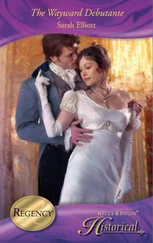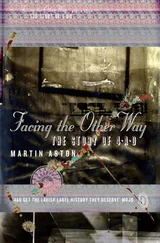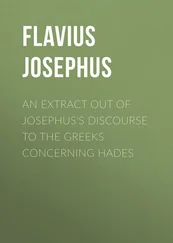“Sebastian,” said Julia kindly, but with a certain sternness, “we think that you exaggerate.”
“By no means,” said Sebastian, “quite the contrary. I wouldn’t venture to tell you, Julia, of the dangers and appalling living conditions which are the fate of anyone who puts to sea with Selena. If you were to imagine me clinging precariously to the rigging in the sort of howling gale which she describes as a nice, lively little breeze, or think of me scrubbing decks and pumping bilges from dawn to dusk under the merciless sun, pleading in vain for a small sip of retsina to cool my thirst — no, Julia, it’s more than your gentle heart could bear. You would want to report the whole thing to the Court of Human Rights or someone.”
“There is,” said Selena, “not a word of truth in this.”
“Sebastian,” said Ragwort, “we believe every word you say. We ask ourselves only by what compulsion, knowing all this, you were persuaded to enlist for the voyage.”
“Seafaring,” said Sebastian, “as of course you know, has from ancient times been a vital element in the Greek way of life, and has had a great influence on their thought and literature. I am anxious to achieve an insight into the sufferings and privations which would have been endured by the ordinary Greek seaman in the periods of which I profess the study. I dare say I’m overdoing it rather — one can hardly imagine that a freeborn Athenian of the fifth century, for example, however poor and economically exploited, would have submitted to quite such despotic treatment as I must look forward to. Still, I am doing my best.”
“When we go aboard,” said Selena, “I shall be revenged for this.”
“Your explanation,” said Ragwort, “reflects great credit on you. But it occurs to us, from our recollection of certain passages in classical literature, that rough words and harsh discipline were not the worst that an Athenian sailor — a young and personable Athenian sailor — might have had to face at the hands of his officers: advantage, we fear, would sometimes have been taken of his subordinate status to make him the instrument of sensual gratification. Have you considered, Sebastian, that you may be placing yourself in a similar danger?”
“Hilary will confirm,” said Sebastian, “that in the cause of Scholarship no sacrifice is too great.”
Having wished our friends a happy and prosperous voyage and waved them farewell from the great gateway between New Square and Lincoln’s Inn Fields, Julia and Ragwort and I turned by common consent in the direction of the Corkscrew. The weather, which had been charming, became suddenly gray and blustery, with a suggestion of rain: we quickened our step, and Julia put on the raincoat which she was carrying.
“My dear Julia,” said Ragwort, as we walked through Great Turnstile, “I do not wish to appear critical, but would you care to tell us how in the world you came to purchase that raincoat? It’s at least two sizes too small for you.”
“It is rather tight across the shoulders,” said Julia. “Indeed, quite uncomfortably so. I rather wish you hadn’t mentioned it, Ragwort — I’ve never noticed before.”
“It might be better,” said Ragwort, “if you didn’t have so much in the pockets.”
“I don’t have anything in the pockets,” said Julia. “I emptied them yesterday in the cause of nearness and order. Oh.” Seeking to demonstrate the emptiness of her pockets, she had produced from one a cellophane-wrapped box, containing, according to its label, a bottle of expensive scent, and from the other a thick brown envelope. “I don’t remember why I’ve got these.”
“If you have been buying scents made by Monsieur Patou,” said Ragwort, “you may count on your bank manager to remember the transaction. Have you any idea what’s in the envelope?” Julia shook her head.
Comfortably established at one of the round oak tables in the Corkscrew, and with a reassuring glass of Niersteiner in her hand, she nonetheless continued for some time to gaze at the envelope with bewildered apprehension, turning it this way and that, as if fearing that its contents might prove inimical to her welfare. At last, however, she was prevailed upon to open it. It contained photographs: some two dozen, all in color, of about the same dimensions as a postcard.
“Julia,” said Ragwort with some severity, “these are not the sort of photographs which one expects to find in the possession of a member of the English Bar — except, possibly, for the purposes of a prosecution for obscenity. How in the world do you come to have them?”
“I haven’t the least idea,” said Julia. “Oh look,” she added, with every sign of pleasure, “there’s one of Selena and me.” The picture showed them sitting side by side on a sofa: Selena, with a look of judicial detachment, seemed to be appraising the quality of her champagne; Julia was smiling with sleepy and bemused benevolence at two other persons — one male, the other female, both naked, in an attitude of greater intimacy than I would wish to describe in detail to my readers: though Selena and Julia were fully dressed, the photograph was taken at such an angle as somehow to suggest that all four figures were part of a single tableau. The background I recognized without difficulty, having seen it less than two hours earlier — it was the drawing-room of Rupert Galloway’s flat. It required but little scholarship to infer that the photographs had been taken at the gathering attended by Selena and Julia in the previous November; and it seemed not over-adventurous to surmise that the film from which they were made had been in the camera appropriated by the spurious policemen.
“Julia,” I said gently, “is that the coat which Selena found for you in the cupboard at Rupert’s flat?” She nodded. “And are you,” I continued, “quite, quite sure that it’s yours?”
She turned the coat this way and that, inside out and upside down, searching, I suppose, for some winestain or cigarette burn which would identify it as unquestionably hers. Eventually, at Ragwort’s suggestion, she looked inside the collar and found sewn there a small name-tape. On reading it, she became rather pale.
“Oh dear,” she said, “it seems to be Deirdre’s. Do you think it’s been there ever since—?”
“Undoubtedly.” I said. “She would have put it in the cupboard when she arrived for the Boat Race party and no one has since thought to move it. I don’t quite know how she came by the photographs, but I fear we may easily guess how she hoped to use them. And that, my dear Julia, solves the last of the mysteries.”
Ragwort raised an eyebrow.
“Deirdre’s letter. I think we may safely assume that what Julia construed as an appeal for help was in truth a prelude to blackmail. It would be not inconsistent with the impression we have been given of Deirdre’s character; and she would no doubt have thought — she was very young, after all — that this picture was sufficiently compromising for Julia to pay money for it. You had better give the photographs to me — if you keep them, Julia, you will mix them up with some set of papers you are dealing with and cause alarm to your instructing solicitors.”
We were afterwards joined by Timothy and Cantrip and in their company spent an agreeable evening, at the end of which Timothy kindly offered me the hospitality of his flat. I rose late and breakfasted at leisure, reflecting with some complacency on the successful conclusion of my inquiry. I thought myself a trifle at fault in directing my mind too little to the point mentioned by Selena — that a person murderously resolved to secure possession of the Remington-Fiske estates, being more remote in the succession than both Deirdre and Camilla, would not necessarily have disposed of them in order of seniority; but since Deirdre’s death had not been achieved by malice, the point seemed an academic one.
Читать дальше












